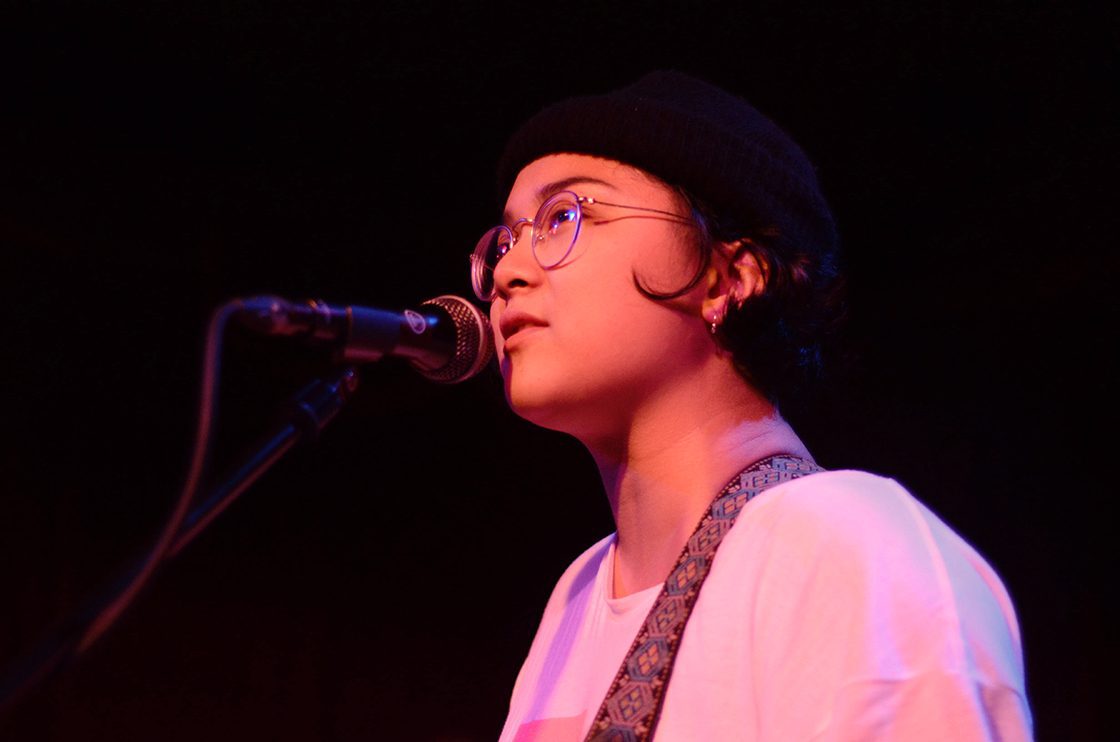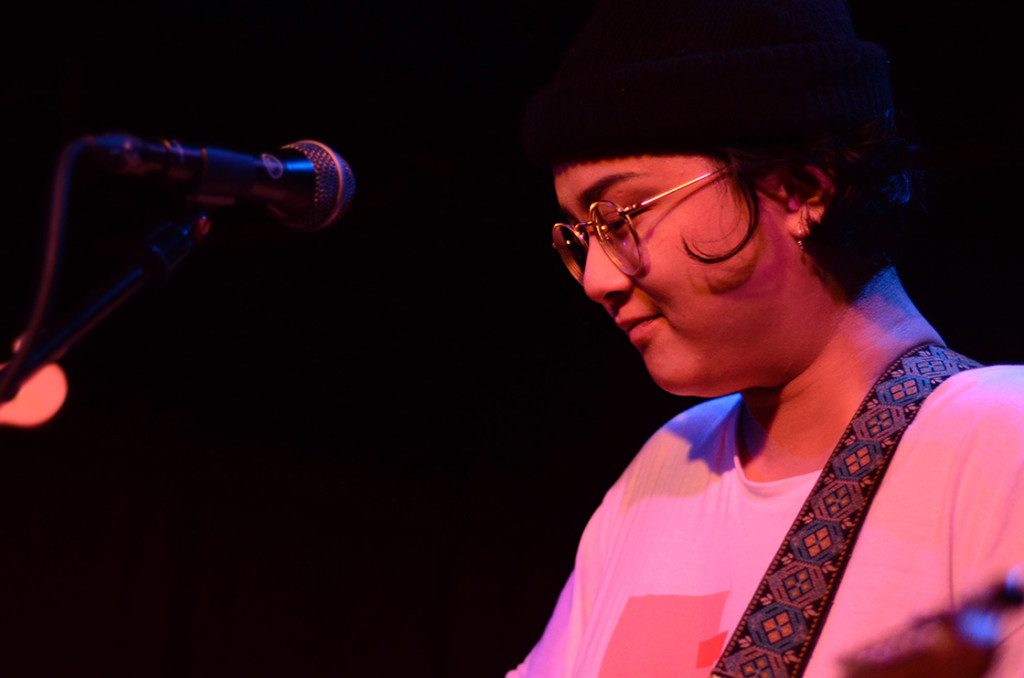PLAYING COLUMBUS: Jay Som @ Ace of Cups

Jay Som has had a big year. Since Polyvinyl picked up the project – conceived and led by Oakland’s Melina Duterte – in 2016, Duterte has released a second full-length album (Everybody Works), toured nationally, played a tiny desk concert at NPR, and received extensive coverage by major media outlets. In other words, Jay Som has outgrown Duterte’s Bay Area bedroom.
At the Ace of Cups last Sunday, Jay Som played a set which drew from both the old (“I Think You’re Alright,” an enduring hit for the band, was first released in 2015) and the new (a video for “The Bus Song,” directed by Japanese Breakfast’s Michelle Zauner, was only released a few weeks ago). It’s probable that I’ve seen the band play live more times than anybody else in Sunday night’s crowd. And it was interesting to encounter Jay Som in Columbus, especially because this might be the last time I hear Duterte play for a while – she and her bandmates are moving to LA in a few weeks, and I’m staying in Columbus for the next few years.
Much has been made of Jay Som’s success in regards to the Bay Area music scene. Duterte is young, Philipinx, gay, and hard-working. She stands within the intersections of identities which are often pushed out of the music industry. But it’s these identities which should, frankly, be populating the Bay Area’s stages more often – POC, especially black folks, make up far more of the East Bay’s demographic than is represented within artistic spaces. As is the case everywhere, DIY and other music spaces in San Francisco and Oakland often prioritize white artists on their bills, making room for loud, cis, white punk boys before creating space for queer folks, women, and people of color.
So it’s encouraging to see Duterte carving a place for herself in the music industry. Encouraging too is seeing artists like her blow up: Kehlani, Xiomara, and Spelling, to name a few, have all made waves far beyond Oakland and San Francisco in the past few years. And Duterte has certainly earned her success. Both Turn Into and Everybody Works are carefully considered, lushly arranged albums. Duterte’s vocals, attention to lyricism, and weaving melodies are remarkable in their precision and vitality.
When performing, Duterte and her band – the bulk of which she grew up with in Brentwood, CA – animate the songs with long diversions into musical riffs. They’ve all known each other a long time, and it shows in their comfort onstage. But that comfort comes with the potential cost of excluding listeners. “There’s nothing I like less than seeing white men jam onstage,” a friend told me during the show, referring to Duterte’s bandmates. That frustration seems to be tension with Jay Som’s success as a Bay Area band. If we are to understand Jay Som as Duterte’s project – and Duterte certainly crafts her records alone – how should we evaluate the musicians that accompany her on tour? Does the backing presence of white, cis men not make an impact on the audience, just as Duterte does?
Jay Som was joined on Sunday by didi, another band intrinsically rooted within its musical community. At this point in their career, didi is a Columbus staple, regularly playing shows with other locals, as well as opening for queercore favorites like Aye Nako and Sad13. The band’s self-titled album, which was released in 2015, is dynamic and well-considered, weighing squealing guitars and sleepy vocals against steady melodies and bass lines.
Like Duterte, didi is vocal about making space for themselves where they can, and are open about the struggles POC and trans folks face booking shows in DIY communities. As well as being accomplished musicians, they’re significant advocates for themselves and others in Columbus.
It’s important to evaluate music within the context of its community. But how do we gain enough access to musicians to make those value judgements? In other words, am I, a recent Ohio transplant, truly able to place a band like didi within the historical and social contexts of the Columbus music scene in the same way I can with Jay Som? How does that change my approach to seeing either band live?
At the end of the show on Sunday, I watched as crowd members lined up to talk to Duterte. Some posed for a picture. Others milled about, finishing drinks or buying merch. It’s striking how much trust we each must have, in each other, and in the musicians onstage, to fill a music venue. To enter any space of entertainment is to re-negotiate the safety of your body in a crowd. That negotiation has higher stakes for some than others, just as being visible onstage is riskier for systematically marginalized folks than it is for those in power. We all take up space in different ways.



